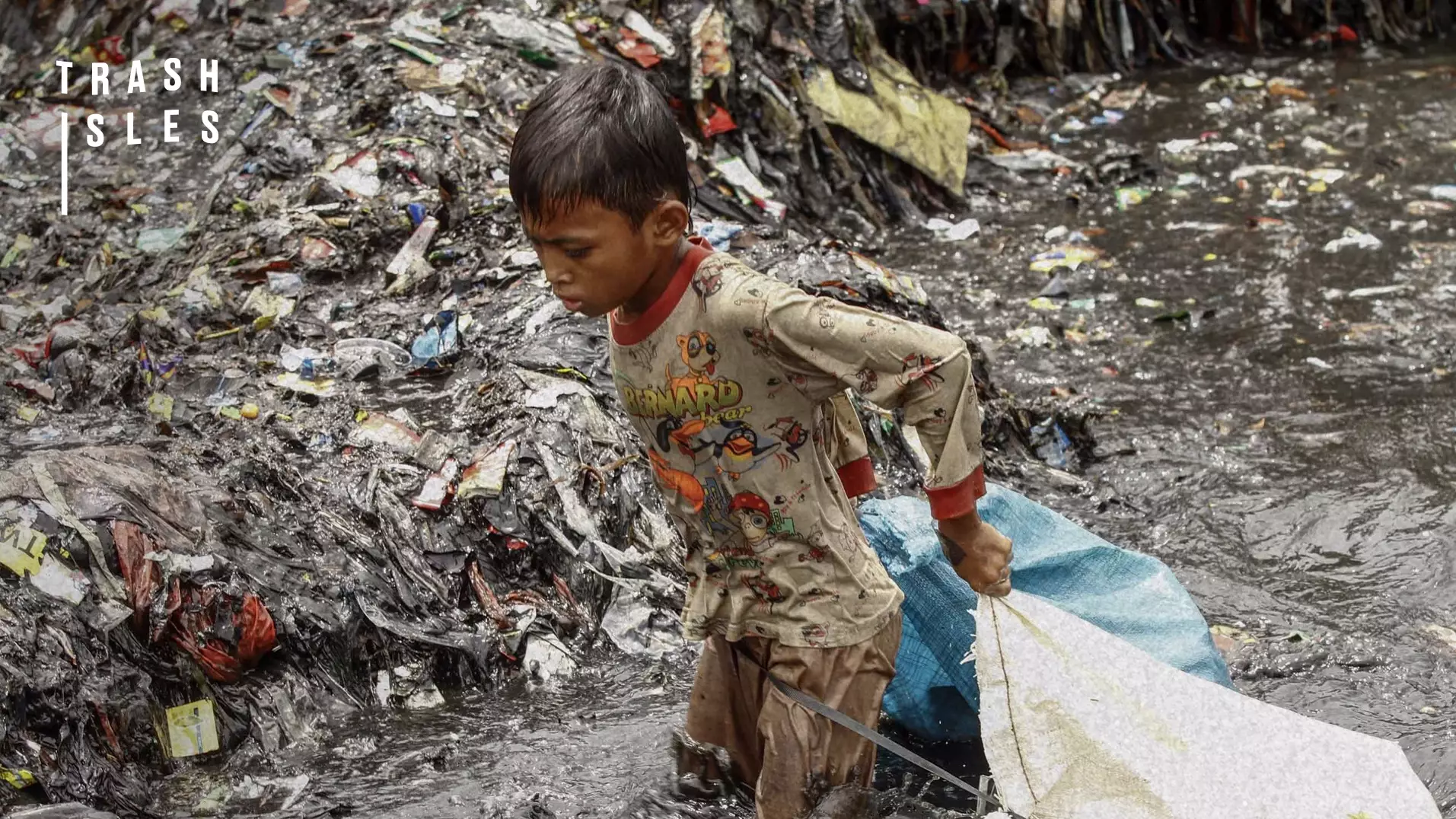
A whopping 55 to 60 percent of all plastic pollution in our oceans is caused by just five countries.
You're probably going to assume the UK and US are in there, right? Well, no. According to a study called Stemming the Tide from the Ocean Conservancy, it's China, Indonesia, the Philippines, Thailand and Vietnam that are responsible for the lion's share of the plastic that ends up in the ocean.
Plastic in our oceans is a massive problem, and not just because it looks horrible. It's having a seriously negative impact on marine wildlife and could be bad news for humans, too, as the plastic is breaking down and getting into our food chain.
Advert
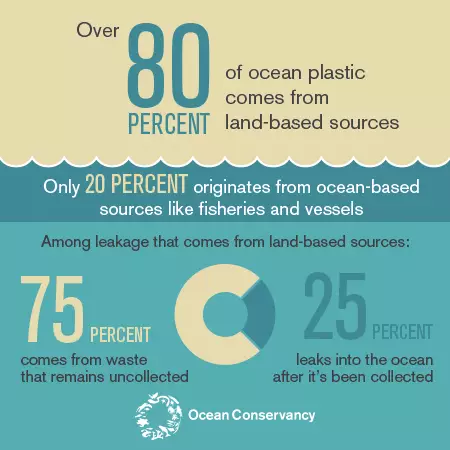
Credit: Ocean Conservancy
This isn't about placing blame or shaming countries, but if we know who creates the most plastic pollution we can start doing something about it. The more people are aware of the problem, the more people we can get on board to make a difference.
Nicholas Mallos, director of the Trash Free Seas program at the Ocean Conservancy, who conducted Stemming the Tide, told LADbible: "It's critically important to remember that plastic in our ocean is not a problem created by just five countries. This is a global problem.
Advert
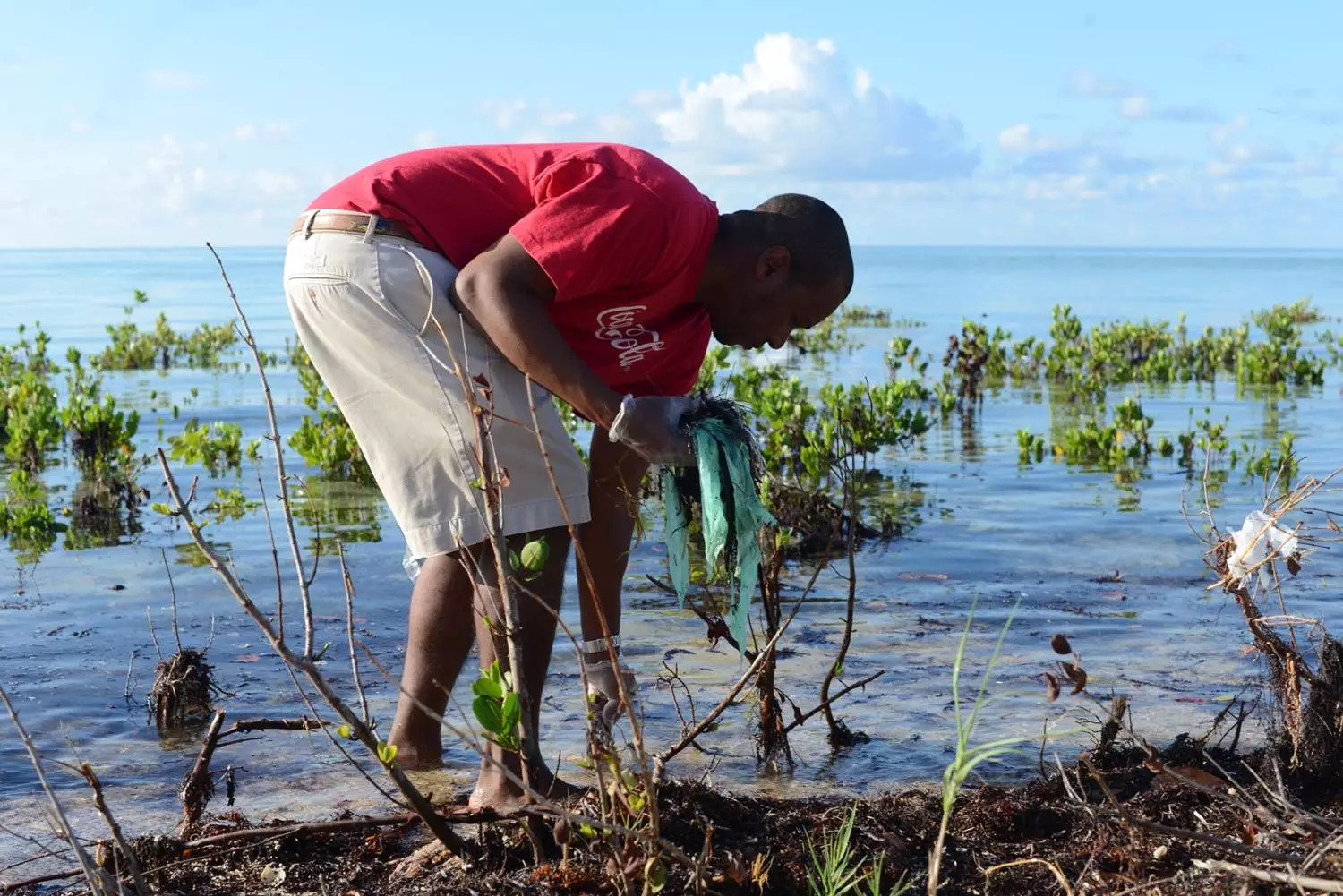
Credit: Ocean Conservancy
"Our analysis in Stemming the Tide built on 2015 findings published in the journal Science, and found that a focus on waste management in China, Indonesia, the Philippines, Vietnam and Thailand could reduce the flow of plastic into the ocean globally by nearly 50 percent.
"An estimated 8 million metric tons of plastic flows into the ocean annually, and about 80 percent of this waste starts on land. Our report found that uncollected and mismanaged waste - which is often dumped into waterways that wash downstream or out to sea - is a major source of ocean plastics.
Advert
"Amazingly, that can be reduced almost in half by 2025 if those five countries can improve waste hauling systems with higher collection and recycling rates and advanced repurpose or treatment technologies."
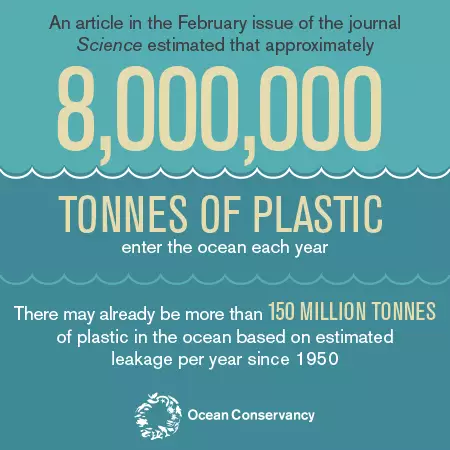
Credit: Ocean Conservancy
So, good news, yeah? But how do we go about achieving that?
Advert
Nick continues: "Ocean Conservancy believes plastic waste and pollution is a problem we can solve. And we all have a role to play. It requires a multi-layered approach from the grassroots up to governments and intra-governmental efforts. Plastic producers and consumer goods companies need to shoulder their fair share of responsibility to solve this problem, too.
"We are witnessing strong grassroots action at local levels that target plastic bags, takeout containers made of expanded polystyrene (foam), and additives like microbeads in some cosmetics.
"While it was not a country-wide ban, the state of California upheld legislation that bans plastic grocery bags which made it the first state in the United States' to do so. And with a state population of over 39 million people, the positive impact on our ocean will be immense!
Advert

Credit: Ocean Conservancy
"Last year, in The Next Wave we presented ways to support and fund improved waste management systems by attracting a wide range of partners, from multilateral institutions and governments to the private sector and civil society in rapidly developing Asia-Pacific economies.
"We worked closely with diverse groups on this report, meeting with more than 200 individuals representing a myriad of businesses, governments and civil society organizations in Southeast Asia to share our ideas, hear their experiences and reactions to our proposals, and improve our thinking as a result of this exchange."

Credit: Ocean Conservancy
And on a personal level, what can we all do?
Nick reckons we all need to become better at reducing, reusing, recycling and recovering waste.
"Action can be as simple as skipping the straw with the next drink," he tells me. "All the way up to organising your community to participate in the International Coastal Cleanup."
LADbible is determined to do something about this situation, and we need your help. We're campaigning to get the 'Great Pacific garbage patch' (a mass of plastic waste, cumulatively the size of France, that's formed off the coast of Hawaii) recognised as its own country. Its name? The Trash Isles.
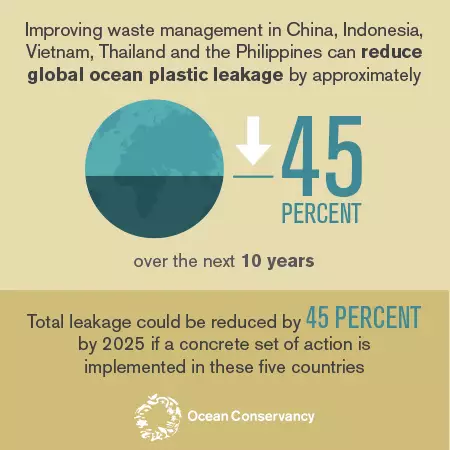
Credit: Ocean Conservancy
As an official country within the UN, it will be eligible for help from other countries. All we need is your help, because to become a registered country, the Trash Isles will need some residents. Don't worry, you won't need to move there - you can sign up here.
You can also click here to find out more about the Plastic Oceans Foundation, or here to sign up to the International Costal Cleanup.
***
LADbible has claimed the world's first country made entirely of trash to highlight the issue of plastic pollution in our oceans.
Get involved and ensure the world's first country made of trash is its last.
Become a citizen of the Trash Isles here
Donate to our charity partner, Plastic Oceans Foundation here
Featured Image Credit:Topics: Pollution, trash isles